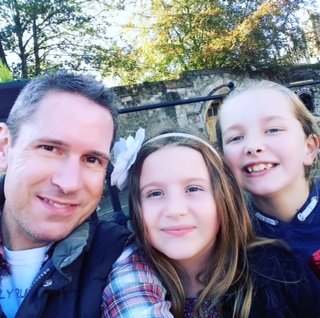Required
Could thinking the worst help you feel happier (and reduce anxiety and stress)?
Could thinking the worst make you happier (and reduce anxiety and stress)?
Sometimes we all have to think about the worst case. Whether it’s when taking out any type of insurance in case something bad happens, or when you get your will drafted, or even just when someone is very ill or sick and there’s a need for planning. Because sometimes contemplating the worst case is an important aspect of planning ahead and being prepared.
Of course, thinking or contemplating the worst case is very different to worrying about it or getting anxious about it. With anxiety, our anxious brain can start to imagine the worst in just about anything and everything, and because it is imagined in such an impactful and ‘real’ way, it can cause those unwanted feelings to seriously spike.
But could deliberately thinking about bad things happening to us actually reduce anxiety and stress and become happier?
Thinking The Worst or Negative Visualisation
There was a time when I used to hate Sundays. They were long, boring and lonely, and generally just meant another week of work and trying to manage or battle my anxiety (when I was highly anxious back then).
Then the kids came along and now Sundays are a day of adventure, exploration and fun (if I turn a blind eye to the odd tantrum and sulk…them, not me!).
Often you will find us walking into and hanging around town and generally just seeing what is going on and enjoying the great outdoors together.

I love all those times out and about and sharing time together. Even if we aren’t doing anything much in particular, they are some of my favourite moments of the week.
In fact, whenever I am with my kids all I want to do is think about being in the moment and then maybe taking an odd moment here and there to think back on how much they have grown and what happy times we all have ahead of us.
The last thing I ever want to do is to contemplate not being around for them, or worse, them not being around for me.
Recently I’ve been revisiting the awesome book, ‘A Guide To The Good Life’ by Irvine where he describes a Stoic psychological technique that advises doing exactly that.
No matter how hard we try to prevent bad things happening to us, some will happen anyway so the Stoics (whose philosophy is now enshrined in aspects of Cognitive Behavioural Therapy and other therapeutic approaches), advised that we should think about these bad things so that this will lessen their impact on us should they happen.
As Irvine writes, “The Stoics…recommended that we spend time imagining that we have lost the things we value – that our wife has left us, our car was stolen, or we lost our job. Doing this, the Stoics thought, will make us value our wife, our car and our job more than we otherwise would.”
Irvine calls this psychological technique ‘negative visualisation’ and suggests it as the way to prevent us from taking for granted, once we have them, the things we worked hard to get. Otherwise we run the risk of getting stuck on the satisfaction treadmill. We desire something in our lives, work hard to get it, feel satisfied for a while and then after a while, find ourselves getting used to it and becoming dissatisfied and so desiring something new e.g. (a new partner, a bigger house, a better car etc).
Rather than living is a constant flux of dissatisfaction, to satisfaction, to dissatisfaction, the Stoics thought that we could achieve more joy, happiness and tranquility by valuing the things we already have in our lives.
And certainly there can be a lot of value in this. It’s far too easy to stop putting in the effort in a relationship or to overlook giving attention to our kids as we focus on our own needs. You can soon forget how much you once wanted that new ‘thing’ and how good you felt when you got it. We can fall into the trap of not valuing the things we have and of constantly yearning for what we do not have.
It can help us feel happier and can extinguish elements of anxiety, worry and dread. And it’s important to remember we are contemplating these things, we are thinking about them, we are considering them. We don’t want to worry or develop anxiety about them. We are seeking to develop the mental fortitude and resilience to deal with things should they arise and to experience happiness and gratitude in the present moment.
As Irvine puts it, “there is a difference between contemplating something bad happening and worrying about it. Contemplation is a intellectual exercise, and it is possible for us to conduct such exercises without its affecting our emotions.”
Contemplating The End
The Stoics also considered that we should periodically contemplate our own death, as well as the loss of other people and things. By reflecting on the fact we won’t live forever, we can then deliberately seek to make the most out of today and each day. As we go about our usual activities we can seek to appreciate today.
We can deliberately give time and attention to those we love instead of being too busy for them. We can seek to make the most of our time rather than always thinking there will be time enough for those things another day. We can celebrate being alive and all the people, places and things we encounter each day.
Rather than squandering each day or going through each day with a sense of monotony or drudgery, we can all seek to recognise the wonder of being alive ad the unique capabilities that we all have. And you can even reflect on the chance of you ever even being born is estimated at about 1 in 400 trillion or more! If that doesn’t make you value your life and all that is in it, then perhaps nothing will – statistically speaking the odds of any of us being born are so great that they have almost no chance of happening!
If we contemplate that, then we all should certainly feel worthy and pretty special indeed. And as such, we perhaps have a responsibility to ourselves to make the most of the miraculous fact that we are here at all. We certainly can adopt a mind-set and attitude that means we appreciate our life today, wherever we are in it right now.
Now personally speaking, I don’t like to spend too long contemplating on the death of either myself or my loved ones, yet I can certainly keep working on appreciating the present and recognising that, if I won’t be here forever, then I can seek to make the most of today in my actions and my mind-set.
And when it comes to my kids, again I don’t want to spend too much time contemplating them not being around anymore but I can keep aiming to appreciate and give them time and attention now. One thing I try to keep in mind, no matter how much they push and squabble and employ ‘selective deafness’ (!!), is that in a few years I may well miss all that.
When they are older and more independent I will likely look back on those rushed moments, those tantrums and their other behaviours with a certain fondness and one day in the future I will likely miss these days of, on occasion, near chaos. So I try and adopt the mind-set that I can handle whatever they do, I can appreciate them for who they are and I hope that, when these days do move on, I will be able to take a certain satisfaction and sense of tranquility that I made the most of them, because I knew they would not last for ever.
“Negative visualisation, in other words, teaches us to embrace whatever life we happen to be living and to extract every bit of delight we can from it. But it simultaneously teaches us to prepare ourselves for changes that will deprive us of the things that delight us. It teaches us, in other words, to enjoy what we have without clinging to it” (Irvine).
So that even as we contemplate and think about the future, we can be sure to appreciate life today. And in doing so we can reduce anxiety and worry, and increase our sense of happiness and gratitude.
To your success and happiness,
Dan Regan
Hypnotherapy in Ely & Newmarket
Want to read more about overcoming anxiety and stress? If so, have a read here: Anxiety Articles
Seeking help to reduce your anxiety, dread and worry so you can experience more joy and happiness? Book your free initial consultation and let’s talk about how we can make that happen together: Appointments
You can read dozens of reviews from happy clients here: Hypnotherapy Testimonials
And you can get a lot of positive value from starting to listen to these powerful hypnosis downloads: Hypnosis Downloads
Get Your Copy Right Now…
Subscribe to Dan’s Digest filled with tips, strategies and techniques and get instant access to your free rapid relaxation hypnosis audio track.
Enjoy feeling and being more mentally calm and physically relaxed right now:





0 Comments